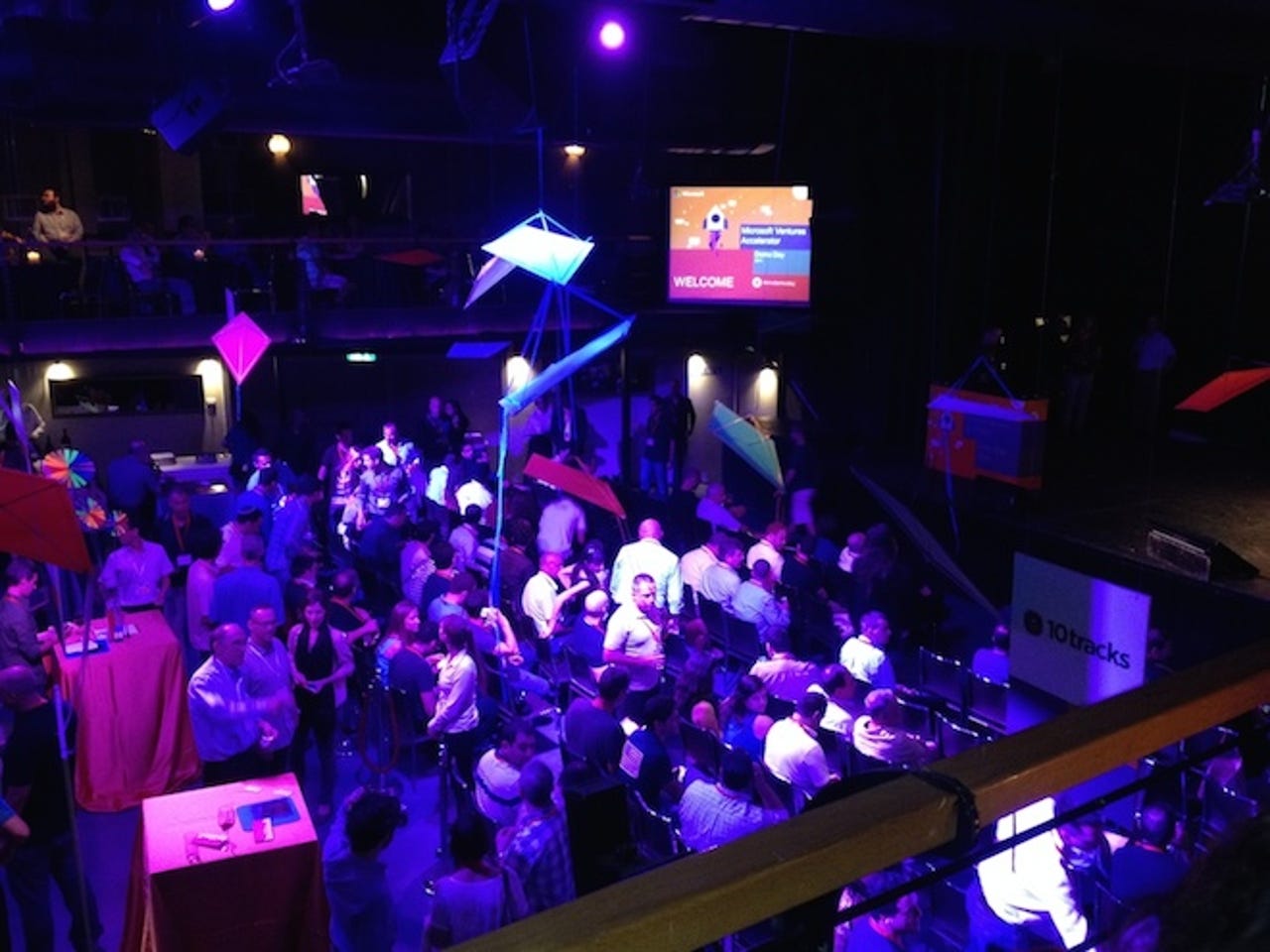Startups under Microsoft's wing raise $8m in latest accelerator batch


At the fourth Demo Night for startups in Microsoft Ventures' accelerator in Israel — which the company recently held in Tel Aviv — Zack Weisfeld, senior director and manager of Microsoft Ventures Europe, announced that between them, 10 of the 13 companies in the program had raised money or received investment proposals totalling $8m.
"We broke our own record," Weisfeld said. That figure represents more money than startups from all previous rounds of the four-month program had raised in total, "and that was before it even ended", he said.
When Microsoft got into the accelerator business two years ago, not everyone in the tech world was impressed; after all, this was Microsoft, the corporate behemoth that had become symbolic of the top-down, bureaucracy-heavy, and limited-mission type of company that was as far from a startup as you could get.
"If the metric you want to measure us by is follow-on funding, then we are certainly up there with the top tech incubators in the world. Among the six accelerators spread throughout the world, 85 percent of our graduates get follow-on funding within a year of leaving the program. Based on recently published research published regarding top US based accelerators, only 59 percent of companies raise follow on funding after completing accelerator programs, and I am talking about the top US accelerators," Weisfeld said, declining to mention names.
The program also helps prepare companies for exits — so far, 11 companies from the program have been acquired.
Read this
Additionally, over the past year, several accelerator graduates were acquired by large multinationals, including Kitlocate (acquired by Yandex) and Appixia (acquired by Wix), Weisfeld said.
"Here, too, we are doing quite well, with an average of five percent of graduates achieving an exit, compared to 2.1 percent for US-based accelerators. I think I can say we are becoming a very important force in the tech ecosystem."
If the accelerator program is any indication of the trends in the rest of Microsoft — and Weisfeld believes it is — the Microsoft of today is far different than the one most people associate with products such as Windows and Office, products that smack of 'old tech', with licenses and desktops and installation disks, as opposed to the 'new tech' world of cloud-based, open source services.
There's no requirement for participants to use Microsoft products, or work on tech that runs on the company's platforms; many of the projects use Linux or other Unix derivatives to do their programming work, and the same goes for databases, web authoring programs, or office suites.
Those signing up receive mentoring and free access to Microsoft's cloud servers and software. Microsoft doesn't take any equity in participating startups, and neither is there any expectation that a startup will sign a partnership or sales deal with Microsoft.
An average of 1,000 entrepreneurs have applied for the 10 or so spots in each of the three programs so far (the next round is already open for applications).
According to Weisfeld, Microsoft is in a good position to put Israeli startup technology in front of large corporations — all of them Microsoft customers — that could be interested in their tech.
"We provide an unparalleled route to customers, to markets and investors," Weisfeld said. "There is plenty of money out there for investment, but for startups, getting customers is the big challenge. We can help these companies get those customers, because of our position in the market. Helping to spread the technology to our customers is one of the main purposes of the Microsoft Ventures accelerator program."
Those joining the accelerator so far come from a wide variety of companies in various industries one would not associate with Microsoft. Among the startups enrolled in this round of the accelerator was SelfPoint, which supplies a product for small grocery stores that want to develop an online shopping presence. The system basically allows merchants to set up online grocery ordering interfaces, taking care of details like distribution channels, delivery systems, logistics, price coordination on items whose prices are constantly changing, and more.
Other startups in the program included AidBits, which provides a cloud-based platform aimed at helping the non-profit sector manage data; Intendu, a company that has created a platform for neurocognitive rehabilitation, based on adaptive gaming; mPharma, which provides governments and pharmaceutical companies in Africa with real-time access to data on physician prescription habits and patient drug consumption; and Trainica, an online training provider aimed at salespeople.
In the next round, said Hanan Lavy, head of the Tel Aviv accelerator, the focus will be on startups in the biotech and online security areas.
The next batch of our accelerator program will also place an extra effort on connecting the startups to the market through focusing on internationally focused topics and working with international partners to solve them," Lavy said.
Microsoft has since exported its Israeli-developed accelerator model around the world.
"We were the first to run an accelerator of this kind for Microsoft," Weisfeld said. "It was seen as an experiment by the company, but people inside the company believed in what we were trying to do."
After Israel, Microsoft opened Accelerators in London, Paris, Beijing, Seattle, and Bangalore — with two more in the works — and are all modelled on the original Israeli accelerator.
"We see the innovation coming out of startups as an important part of Microsoft, and we're here to help fuel that innovation," Weisfeld said. For Microsoft, working with startups "is one of our most important bets for the future".